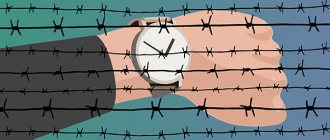Causing bodily harm
Lungs Excellent from beatings. Causing grievous bodily harm article of the Criminal Code of the Russian Federation, punishment period? In accordance with Article 116 of the Criminal Code of the Russian Federation, beatings provoke pain. They leave scratches, bruises, and cuts. Only a medical examination can determine the extent of damage caused. In this case, the deterioration of the person’s condition assumes a period of up to three weeks.
Whether it is a beating or serious injury is decided by a professional traumatologist.
Moderate These are injuries in the form of burns, wounds, both cut and punctured, but not affecting internal organs, fractures, etc. Moderate injuries do not worsen the health of a person for a long time and do not affect him irreparably.
For a more detailed consideration of responsibility and punishment for a crime, you will need a free consultation with a lawyer, which you can get on our website. Personal injuries can be divided into several main types. Depending on the level of damage caused to health, criminal law divides bodily injuries into three main groups.
Hitting doesn't mean loving
“So this is Malaysia, they have their own traditions,” one of the readers may say. What is the article of causing grievous bodily harm by negligence? However, if you look around and answer honestly, is there really a person in our country who is not surrounded by a family, where a woman, and often children, are subjected to beatings from the head of the family? Yes, there are situations when a man is beaten, but in the context of this article I would like to discuss beatings from the stronger half of humanity.
It is clear that most people will now think that contacting the authorities in case of domestic violence is useless. When it comes to family squabbles, government officials often have an opinion that boils down to “your family – you sort it out,” or even “if he kills you, then come.” However, I would like to note that in any profession there are indifferent people and responsive people, responsible people and those who do not treat their duties properly, so you should not completely write off the protection of the state.
Recently I came across the book How I Was a Princess by Jacqueline Pascarle. I read it in one sitting, swallowing tears and feeling indignant. The events described in the book take place in the second half of the 20th century, in a century seemingly free of gender prejudice and barbarism. But the author talks about her family life, in which she is subjected to humiliation and beatings from her husband, the Malay prince.
The expected fairy tale, a wedding with a prince, actually turns into a terrible tragedy. Why do women tolerate such treatment? Do they really think she “deserves it”? Or is it something that has been hammered into our consciousness for centuries: “Hits means he loves”? The most difficult category for psychologists are women who grew up in a family with an oppressive father and from early childhood absorbed into their blood the conviction that a man is always right, no matter how he acts.
Here this very humility and patience is already embedded in the woman’s consciousness. Here the main problem is not even the willingness to endure beatings, but the recognition of oneself as a “second-class person,” simply on the basis of gender.
Who is covered by the amnesty for the 30th anniversary of independence of the Republic of Kazakhstan?
In accordance with the law of October 5, 1994 “On amnesty in connection with the International Year of the Family,” 1,380 convicts were released. In accordance with the law of July 13, 1999 “On amnesty in connection with the Year of Unity and Continuity of Generations,” 15,705 convicts were released and the sentences of 2,270 convicts were reduced.
The bill “provides for the release from punishment of persons convicted of committing crimes that do not pose a serious threat to the security of citizens and the state.”
In the document under consideration, the concept of a socially vulnerable category was introduced for the first time. The bill proposes exemption from punishment for convicts who have committed a criminal offense and crimes of minor and medium gravity, which did not cause damage, or fully compensated for it, and do not pose a threat to the safety of citizens and the state. Certificate of registration of a periodical printed publication, news agency and online publication - No. KZ27VPY00031747 dated 01/28/2021.
Mobile application Nur.kz
Those who do not fall into the above categories, but are sent to prison for committing a crime of moderate gravity, will have the unserved portion of their sentence halved.
Even by couriers. They don't hire taxi drivers. I had one convict who worked as a courier and delivered food. So, one of his clients recognized him, called this company, and he was fired the next day. Society is pushing them out. And at the same time, people demand that the punishment in the current Criminal Code be toughened.
The 2022 amnesty, initiated by President Kassym-Jomart Tokayev in honor of the 30th anniversary of Kazakhstan's independence, will not lead to a sharp increase in crime. However, some former prisoners may soon return to correctional institutions. Human rights activists and lawyers discuss what needs to be done to prevent this from happening.
Crime has been and will remain at this level. I did not observe a sharp surge in crime after the amnesty.
The text of the bill itself is not yet publicly available, nor is there any information about its developer. A source from “CARAVANA” reported that this is the committee of the criminal-executive system of the Ministry of Internal Affairs of the Republic of Kazakhstan. The development of documents on previous amnesties was carried out by the Prosecutor General's Office.
The bill also defines the conditions for the application of the amnesty, including in relation to persons convicted by sentences of the courts of Kazakhstan and serving abroad on the basis of international treaties.
Persons convicted of committing grave and especially grave crimes, who do not have a negative degree of behavior, and who, on the day of entry into force of this Law, have no more than one year left to serve their sentence, shall have their sentence reduced by the unserved part of the main sentence.
Also, according to Kazakh lawyers and human rights activists, it is possible that the 2022 amnesty will not include persons convicted of corruption crimes. In one of his recent speeches, the President of Kazakhstan, Kassym-Jomart Tokayev, demanded that they not be given amnesty.
Murderers can get caught if the crime does not involve violent acts. If it's just a murder, they may be eligible for amnesty. A zakon.kz correspondent spoke with lawyer Aiman Umarova about who could be released from prison next year.
Infliction of bodily harm: article for beatings of moderate, mild and severe degree
The fact is that beatings may not lead to consequences in the form of bruises, scratches, cuts, hematomas; For liability for battery under Article 116 of the Criminal Code of the Russian Federation, inflicting severe physical pain on the victim is sufficient. Prosecution for causing minor bodily harm presupposes a deterioration in health recorded by a forensic medical examination for a period not exceeding three weeks (see how to remove beatings).
Serious harm to health, as in previous versions, is determined by a forensic expert.
Such harm entails serious consequences for the health of the victim, sometimes irreversible and not treatable. According to the rules approved by the Decree of the Government of the Russian Federation, harm can be considered grave in the event of:
- this may be recordings from a surveillance camera (if the beating occurred in a public place)
- interrogation of eyewitnesses
- as well as those who helped you.
- causing him life-threatening injuries
- the onset of a mental disorder in the victim
- the development of drug addiction, etc.
In the case of light injuries, the punishment is similar in type, but somewhat harsher in size (up to 480 hours of compulsory labor, up to a year of correctional labor). If there is a proven hooligan or national motive (Part 2 of Article 115 of the Criminal Code of the Russian Federation), the punishment can reach two years in a penal colony.
Article 115 of the Criminal Code of the Russian Federation - causing harm to health of mild severity
As you know, hooligan motives are the actions of a person without any motive to commit a crime; he acts spontaneously, under the fictitious pretext of “beating the victim just like that.” Causing minor harm to health in an accident is also not covered by the provisions of the Criminal Code of the Russian Federation, as is causing moderate harm to health in an accident. Responsibility for committing such offenses is established in Chapter 12 of the Code of Administrative Offenses of the Russian Federation. It is worth noting that causing harm to health in an accident is an administrative offense only when the actions of the guilty person were of the nature of negligence.
If the culprit acted intentionally, his actions fall under the provisions of the Criminal Code of the Russian Federation.
Let us analyze the qualifying features of Article 115 of the Criminal Code of the Russian Federation. This is the infliction of minor harm to health, committed: Intentional infliction of minor harm to health is a crime against health, expressed in causing bodily harm to the victim, resulting in a short-term health disorder or a minor permanent loss of general ability to work. As judicial practice shows, forensic experts include minor bodily injuries such as abrasions and bruises of the head, soft tissues of the face, and severe bruises of the extremities. In rare cases, a minor concussion.
In any case, each injury is individual, and a diagnosis is made only after a comprehensive examination of the victim.







